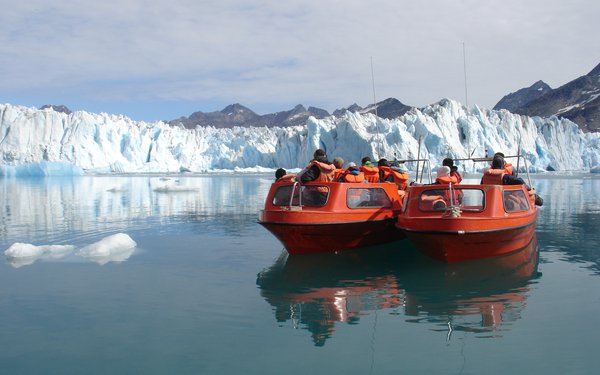Institute of Geography
All human activities take place in a geographic space of enormous diversity and continuous transformations. The research and teaching activities at the Institute for Geography are aimed at improving understanding of the causes and effects of global change and at working up problem-solving approaches, which enable sustainable development in the Anthropocene.
RESEARCH AT THE INSTITUTE
Research at the institute is very diverse. In the areas of society, the environment and resources, we deal with change in our environment, particularly climate and land use, as well as the transformation of our society(ies). We examine the management of natural and digital resources, relationships between environment and health, as well as local, regional and national mobility and their factors. A strong focus on methodological development in close collaboration of methodological, didactic and scientific disciplines is our unique characteristic. Geographical education and the visual communication of complex relationships round off our research profile.
- Applied Geoinformatics
- Biogeography
- Geography Education
- Geoinformatics
- Human geography and Transformation Research
- Hydrology and applied physical geography
- Physical Geography and Climate Science
- Urban and regional planning
- Regional Climate and Hydrology
- Water and Soil Resource Research
- Urban climate resilience
- Climate Resilience of human-made ecosystems
STUDY
The Institute for Geography supports approx. 1700 students on its courses (as of June 2019). Our graduates praise the study options as well as the possibilities for profile building. Our respective current annual topic connects the interdisciplinary range of curricula.
Important study details, links to module catalogues, information on examinations and more can be found on our Study pages.
Bachelor of Science
The institute offers Bachelor degree courses in geography and geoinformatics (together with the Institute for Informatics) and is represented within other courses with optional topics.

Master’s Degree
Our master’s courses in geography, geoinformatics, climate and environmental sciences as well as global change ecology reflect the diversity of our research.

Teaching Profession
In the teaching courses, all combinations can be studied with all school types (Gymnasium (grammar), Realschule (secondary school), Mittelschule (middle school), Grundschule (primary school), Drittelfach (three Rs subject).

News
Here you will find news about the institute and its research activities.
Information and news about teaching and studies can be found under „ Study News“.
Applied Geoinformatics & the ICA-LBS commission had a very successful conference 2025 . info - https://lbs2025.lbsconference.org/
Applied Geoinformatics & the ICA-LBS commission had a very successful conference 2025
info - https://lbs2025.lbsconference.org/
[Applied Geoinformatics]
Leonie Engemann, Geoinformatics MA thesis "Spatial Knowledge Graphs for Supply Chain Management" UniA, has been selected Universität Augsburgs "Esri Innovation Program (EIP) Student of the Year"

GI Runde 2025 - Den Preis für die beste Masterarbeit erhielt Daniel Vester, UniA, Angewandte Geoinformatik, „Estimating dynamic population using cellular network data“. Herzlichen Glückwunsch!

OUR LOCATION
Postal address
Institut für Geographie
Universität Augsburg
D-86135 Augsburg
Visitoradress
Institute of Geography
University of Augsburg
Alter Postweg 118, building B
D - 86159 Augsburg
The offices are located in building B.
Locations & maps (University of Augsburg)

